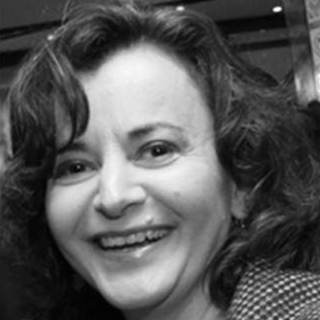click to dowload our latest edition
CLICK HERE TO SUBSCRIBE TO OUR NEWSLETTER


Published
9 years agoon
By
adminROBYN SASSEN
Jewish Report asked Rabbi Craig Kacev, general director of the SA Board of Jewish Education, as well as other representatives of Jewish education in the country, to provide us with some figures for comparison.
“As we have tracked the number of Jewish children in Jewish schools over the past few years, we have seen a slow growth in the numbers,” he said. “The really positive figures are coming through at the early grades where overall, across all the Jewish schools combined (even while there are fluctuations year-on-year at individual schools) the numbers are increasing. But Rabbi Kacev has not yet given figures or percentages to back up this comment.
“There are a number of Jewish day schools in the community which operate along a spectrum of religiosity or along affiliation to a specific philosophy of Jewish education,” he referred to material he had written in 2006 on the history and value of Jewish education.
“Each school with its own particular outlook may choose to emphasise each area of communal or religious or historical focus differently. But without a serious engagement with each of these issues, one has a school trying to attract Jews for monetary gain or other reasons by offering to clear a parent’s conscience while never really being serious about Jewish education.”
Explaining the history of Jewish specialist schools, he describes the Talmudic school as its historical forebear, explaining it was set up “from Talmudic times to cater for children with no parents to teach them”.
Commenting on the value of teaching Jewish history and political identity, Rabbi Kacev added: “Enticing Jewish children into mixed environments during their adolescent years will impact on their future choices to remain connected to their heritage.
“School is a community; the relationship with and influence from peers is at its strongest during one’s schooling years. Children who choose not to go to Jewish schools, choose most often to opt out of being a part of community structures after school.” He added that as far as he was aware, all South African Jewish schools were Orthodox in affiliation: there were no Reform or Progressive schools.
He mentioned that while statistics as to how many Jewish children were going to government – or non-Jewish private – schools right now, were not available, “the percentage in the Jewish day schools is high: close on 9 000 Jewish children – which we estimate to be around 85 to 90 per cent of the population of Jewish school-going children – are being educated in Jewish schools.
“The fallout rate is very small,” he commented.
A teacher at Durban’s Temple David Hebrew School – in existence for some 50 years – Diane McCall, has not found attendance to be rising. While the school is more of a cheder affiliated to the Reform shul in the area, and operates under the auspices of the SAUPJ where children are educated in terms of religious values rather than secular ones, she commented that the numbers of the school had risen very little and would stabilise in 2015.
Rabbi David Hurwitz, head of general studies at Mesivta Shaarei Torah Boys High School in Johannesburg, said: “We have grown beyond our wildest expectations.” He added that the school, which was established in 2009, catered to learners from grade 7 to 12. It had over 70 learners currently enrolled. The ethos of the school was one that catered to a family “who aspires to have their sons learn in yeshiva for a significant amount of time after school”.
Geoff Cohen, director of education at Herzlia in Cape Town, said that in 2014, the school had 2 065 pupils. “Over the past five years, the enrolment has enjoyed a relatively steady increase, although 2014 was marginally smaller than 2013’s intake, which was 2 084.
“Herzlia enrols pupils from across the full religious spectrum,” he added. “We have pupils who are Dati and belong to Orthodox shuls, including Ohr Someyach, Chabad, Mizrachi and Sephardi.
“We have pupils who belong to the Progressive community; we have pupils who are unaffiliated; we also have pupils who are not Jewish at all and may be Christians and Muslim.”
Established in the mid-1970s, a continuation of Menorah Oxford, which Rabbi Norman Bernhard established in the 1960s, Torah Academy’s intake in 2014 was 590, according to Rabbi Dovid Hazdan. There were approximately 235 enrolled on nursery school level, 195 in the primary school and 160 in the high school.
“After remaining static for a number of years,” he added, “we have seen an increase of around eight per cent per annum. The increase in 2015 will be 15 per cent.
“Torah Academy is a tapestry woven of great diversity, but of powerful unity. We have learners and graduates of all backgrounds, drawing from a broad range of homes, including haredi, Chabad, Mizrachi and traditional homes. Each child is made to feel comfortable and at home. In one Girls’ High class, 15 different diverse communities are represented.”
Gaynor Lazarus, head of the governing body of the Umhlanga Jewish Day School, which was established three years ago, commented that the school, which catered to a wide range of learners affiliated with different levels of observance, was steadily rising.
“The school, in 2015, will cater to grade 9 learners – year by year it has grown in its capacity. It boasts an intake of 60.”
